SUMMARY
This is AI generated summarization, which may have errors. For context, always refer to the full article.
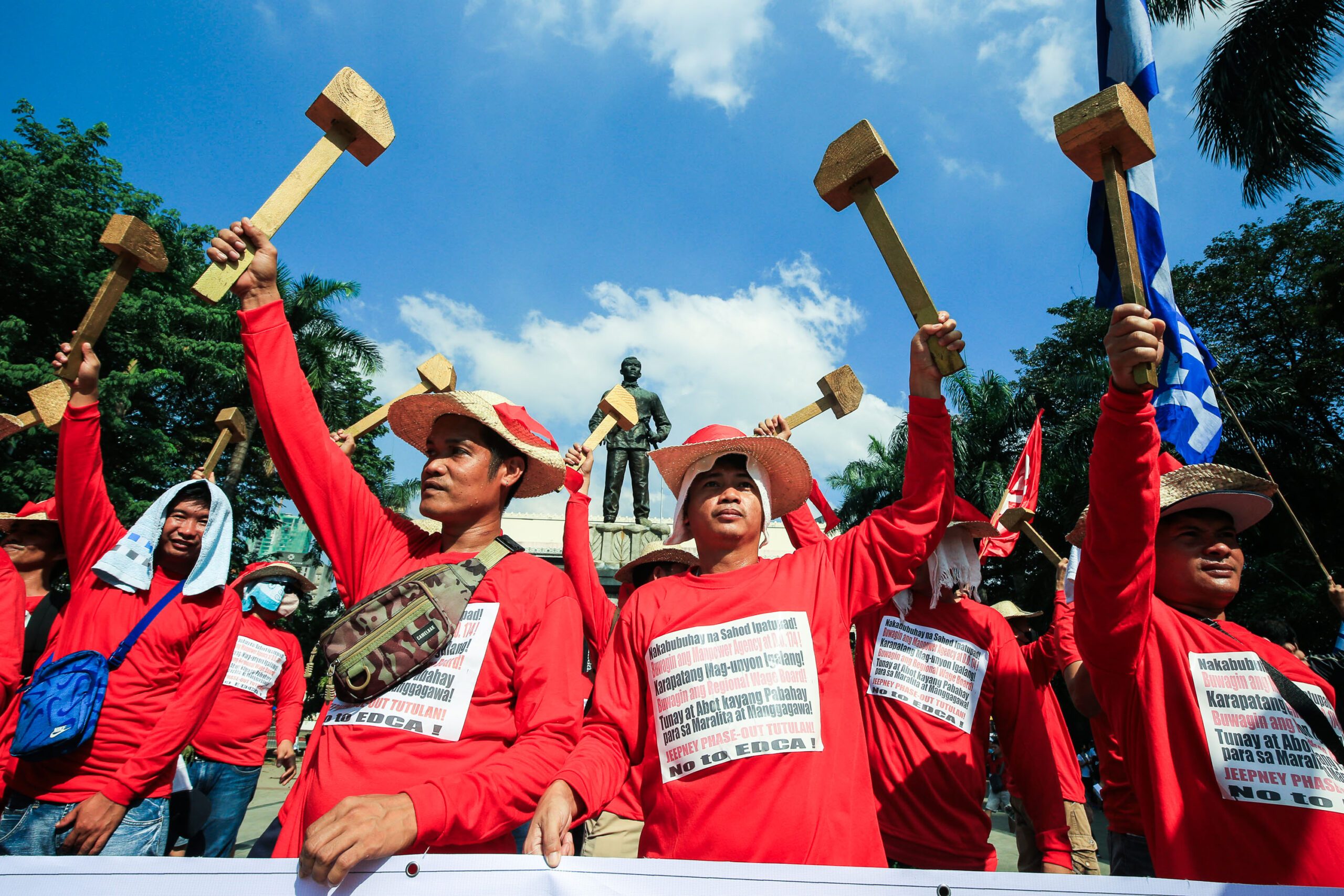
MANILA, Philippines – Every year on Labor Day, May 1, various labor rights organizations take to the streets to amplify workers’ rights issues and call on the government to address them.
A number of calls are mostly evergreen: wage increases, security of tenure, and the right to freely associate. As the government responds to the workers’ demands, calls also evolve every year with the social, economic, and even climate-related circumstances that affect workers’ welfare.
Here are five issues highlighted in the labor sector this year.
Proposed nationwide minimum wage increase
There are several bills in the 19th Congress that look to implement a nationwide, across-the-board minimum wage increase for private sector workers. The last legislated national wage hike in the Philippines was in 1989, when the Wage Rationalization Act ordered a P25 increase from the national minimum wage, which was then P64.
The proposed amounts vary per version, seeking increases from P100 to P750.
Proposals in the Senate and House of Representatives cut across political alliances – such as one of the P750 versions in the lower chamber being filed by the left-leaning Makabayan bloc, and the P100 version in the Senate pushed forward by administration-aligned, Senate labor committee chairperson Jinggoy Estrada.
Labor groups and advocates have said during hearings that the discussions should no longer be about whether or not there should be a wage increase, but rather how much it should be.
The calls stem from a long-time push for more liveable wages in the Philippines – a reason why millions of Filipinos seek work abroad. While regional wage boards have regularly granted increases, especially amid a fluctuating economic situation, labor groups believe a nationwide increase is needed.
However, employers’ groups and even Labor Secretary Bienvenido Laguesma raised concerns about whether the private sector, especially the micro, small, and medium enterprises, could afford it.
Excessive heat
Heat indices in different parts of the country are reaching over 40°C every day as the Philippines copes with the effects of El Niño, a weather phenomenon that occurs when the ocean surface temperatures become unusually warm in the eastern tropical Pacific Ocean.
Some areas like Legazpi City, Iba in Zambales, and San Jose in Occidental Mindoro have recently recorded scorching temperatures of over 50°C.
Schools have been able to suspend classes or go into a virtual setup, learning from the COVID-19 pandemic. While some industries are able to similarly revert to flexible setups, many others are unable to, forcing their employees to come to their workplaces in sweltering heat.
These include workers in construction, logistics and transport, healthcare, and government, among others.
The Department of Labor and Employment, through Labor Advisory No. 8, series of 2023, has called on employers to implement flexible work arrangements whenever possible. When work requires physical presence, employers are directed to implement measures that would help protect their employees from heat stress, like proper ventilation in workplaces, and provision of protective clothing and potable water.
Even with a labor advisory, labor groups have sounded the alarm over some of their members still experiencing heat-related ailments like dizziness, high blood pressure, and dehydration during work, with some even suffering from heat stroke.
Livelihood of jeepney drivers
Labor Day of 2024 comes a day after the “final” deadline for public utility vehicles (PUVs) to consolidate under the Philippine PUV Modernization Program (PUVMP) on April 30. Various transport groups have said that the consolidation requirement threatens the livelihood of jeepney drivers.
Transport group PISTON’s three-day transport strike ends on May 1. PISTON, Manibela, and other groups have been protesting consolidation, citing fears that it may allow businesses and large entities to monopolize public transportation.
Some labor and employer groups have expressed solidarity with transportation workers ahead of Labor Day. The Federation of Free Workers (FFW) said on Monday, April 29, that the Leaders Forum, a bipartite network of employer and industry groups alongside their labor counterparts, issued a unified call for the government to urgently reassess the PUVMP.
The group estimates that the PUVMP will affect the livelihood of some 38,000 jeepney drivers and their families.
“The Leaders Forum criticized the PUVMP’s failure to incorporate principles of a ‘just transition,’ noting the lack of consultation with jeepney operators in the design of modern alternatives and the prohibitive costs of new, imported jeepneys,” FFW said.
Some members of the Leaders Forum include the Employers Confederation of the Philippines, Philippine Chamber of Commerce and Industry, Trade Union Congress of the Philippines, Sentro ng Nagkakaisang Manggagawa, and the FFW.
After the deadline, the Land Transportation Franchising and Regulatory Board said that it will give unconsolidated jeepneys a 15-day leeway to still ply their routes before the government starts impounding the vehicles.
Implementation of C190
On February 20, the Philippines ratified International Labor Organization Convention No. 190 (C190), the first international labor standard for addressing violence and harassment in the world of work. The country became the 38th country in the world, and the first in Asia to ratify it.
In the “world of work,” C190 encompasses all sectors – from public to private, urban and rural, and in the formal and informal economy. It provides a common framework to address violence and harassment, including gender-based violence.
In 2023, labor groups and advocates lobbied for its ratification. In October 2023, President Ferdinand Marcos Jr. endorsed it to the Senate, expressing his enthusiasm for its need in the country.
“The ratification of ILO C190 will fortify the Philippine government’s mandate and policy in promoting and protecting the rights of Filipino workers, locally and overseas, by pushing for a work environment with zero tolerance for violence and harassment,” Marcos had said.
But even after ratification, the effects of an international convention can only be felt if it is implemented. In March, Women’s Month, women workers called for its implementation amid persistent gender-related issues among the workforce.
“While we celebrate the successful ratification of the ILO C190, we also raise our voices on how multiple crises – economic, health, food and climate – are disproportionately affecting women and worsening gender inequalities,” Annie Geron, president of the Public Services Labor Independent Confederation, was quoted in an ILO report as saying.
Contractualization
Security of tenure issues have time and again been included in Labor Day calls. For years, and across administrations, the Philippines has failed to pass a security of tenure bill, which would end contractualization in the country.
Contractualization, also known as “endo” (a play on the phrase “end of contract”), is the practice of hiring workers for fixed terms and continuously renewing their contracts to avoid giving benefits a regular employee is entitled to.
In this practice, labor contracting companies hire workers for employment with clients for a period of usually not more than six months. Some industries where contractual workers are typically seen working in include food service, maintenance, and security.
On April 25, President Marcos moved the expiration of the employment of contract of service and job order workers in government from December 2024 to December 2025. – Rappler.com
Add a comment
How does this make you feel?
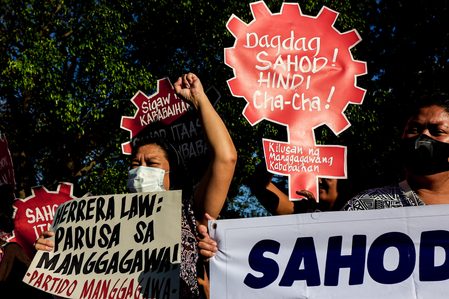
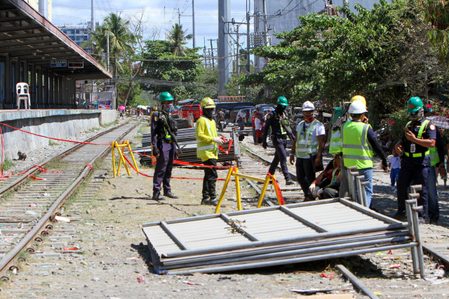










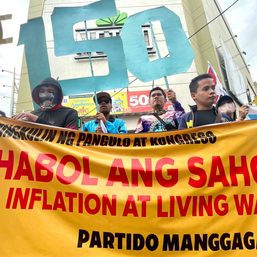
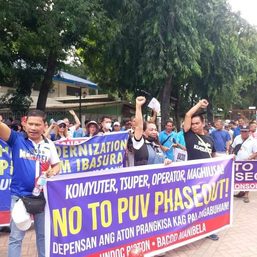

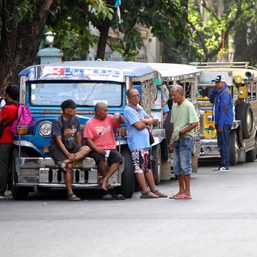
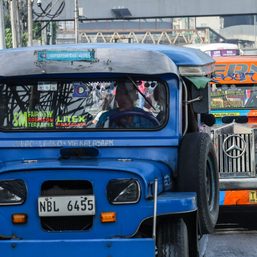
There are no comments yet. Add your comment to start the conversation.